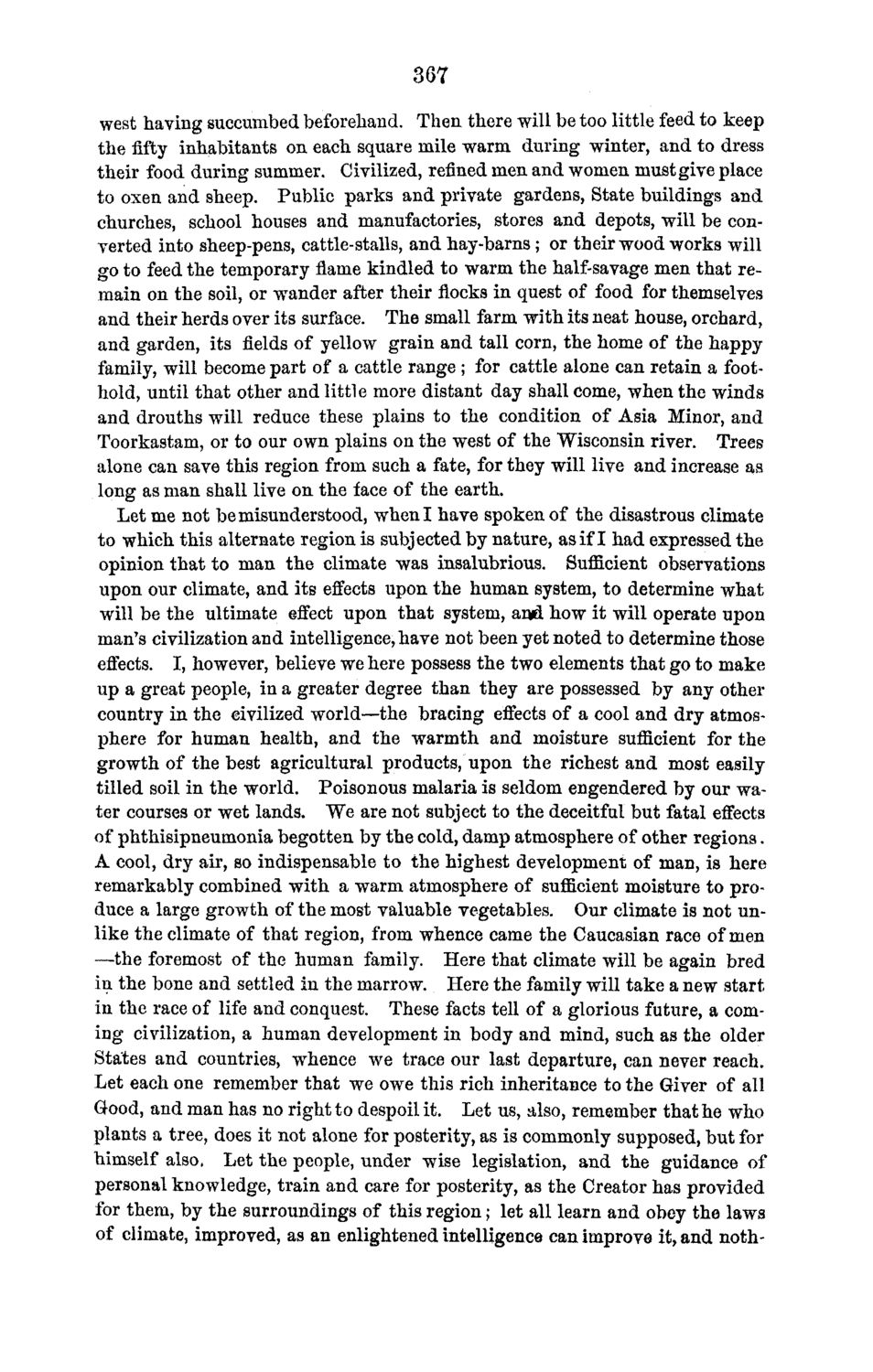| |
| |
Caption: Board of Trustees Minutes - 1870
This is a reduced-resolution page image for fast online browsing.

EXTRACTED TEXT FROM PAGE:
367 west having succumbed beforehand. Then there will be too little feed to keep the fifty inhabitants on each square mile warm during winter, and to dress their food during summer. Civilized, refined men and women must give place to oxen and sheep. Public parks and private gardens, State buildings and churches, school houses and manufactories, stores and depots, will be converted into sheep-pens, cattle-stalls, and hay-barns; or their wood works will go to feed the temporary flame kindled to warm the half-savage men that remain on the soil, or wander after their flocks in quest of food for themselves and their herds over its surface. The small farm with its neat house, orchard, and garden, its fields of yellow grain and tall corn, the home of the happy family, will become part of a cattle range ; for cattle alone can retain a foothold, until that other and little more distant day shall come, when the winds and drouths will reduce these plains to the condition of Asia Minor, and Toorkastam, or to our own plains on the west of the Wisconsin river. Trees alone can save this region from such a fate, for they will live and increase as long as man shall live on the face of the earth. Let me not be misunderstood, when I have spoken of the disastrous climate to which this alternate region is subjected by nature, as if I had expressed the opinion that to man the climate was insalubrious. Sufficient observations upon our climate, and its effects upon the human system, to determine what will be the ultimate effect upon that system, anjd how it will operate upon man's civilization and intelligence, have not been yet noted to determine those effects. I, however, believe we here possess the two elements that go to make up a great people, in a greater degree than they are possessed by any other country in the eivilized world-—the bracing effects of a cool and dry atmosphere for human health, and the warmth and moisture sufficient for the growth of the best agricultural products, upon the richest and most easily tilled soil in the world. Poisonous malaria is seldom engendered by our water courses or wet lands. We are not subject to the deceitful but fatal effects of phthisipneumonia begotten by the cold, damp atmosphere of other regions. A cool, dry air, so indispensable to the highest development of man, is here remarkably combined with a warm atmosphere of sufficient moisture to produce a large growth of the most valuable vegetables. Our climate is not unlike the climate of that region, from whence came the Caucasian race of men —the foremost of the human family. Here that climate will be again bred in the bone and settled in the marrow. Here the family will take a new start in the race of life and conquest. These facts tell of a glorious future, a coming civilization, a human development in body and mind, such as the older States and countries, whence we trace our last departure, can never reach. Let each one remember that we owe this rich inheritance to the Giver of all Good, and man has no right to despoil it. Let us, also, remember that he who plants a tree, does it not alone for posterity, as is commonly supposed, but for himself also. Let the people, under wise legislation, and the guidance of personal knowledge, train and care for posterity, as the Creator has provided for them, by the surroundings of this region; let all learn and obey the laws of climate, improved, as an enlightened intelligence can improve it, and noth-
| |